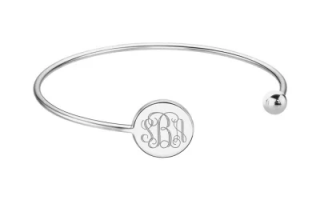Backhanded compliments are rather rude remarks that are posed like compliments on the outside but contain an insult or criticism at the core.
Whether on purpose or not, backhanded compliments can hurt a lot, and you can doubt whether the person who complimented you is sincere.
Responding appropriately yet respectfully is the key to nipping these situations in the bud without building unnecessary tension.
This article is written to help you with tactics for beating backhanded compliments without losing your self-confidence and dignity in the process.
Understanding Backhanded Compliments: Recognizing the Subtle Insult
Backhanded compliments are a kind of comments that seem like they are praises on a superficial level, but they actually contain a hidden insult or criticism.
Recognizing the hidden hand behind these veiled insults is the first step in responding properly.
The twist is frequently hidden inside the compliment or is followed up by a “but” or “however” statement.
For example, “You look fantastic for your age, but your haircut is a bit outdated.” Or, “Your research was thorough, but your delivery needs a little bit of practice.”
On other occasions, the bad blow will be done through an over-the-top, unimaginable compliment that makes you doubt the truthfulness.
“Wow, I can’t believe that you cooked an edible meal!” apparently referring to the fact that you usually can’t cook anything edible.
Also sometimes, the compliment is followed by a qualifying remark that reduces or almost contradicts the initial recognition. “That dress is good if you are into a style like this.”
Watch out for your physiological reaction to a compliment: if your gut reaction is vexation, confusion, or hurt, it may be a backhanded compliment masked as mild praises.
Recognizing those subtle stabs is the much overdue first step in designing a good reply.
Assessing the Situation: Deciding When to Respond or Let It Go
Not all backhanded compliments require a response. At times, it may be more productive to leave it and just let it be. On the contrary, there are cases where it is better to respond to the remark.
Here are some factors to consider when deciding whether to respond or let it slide:
- Intent: Attempt to determine whether the person meant to be offensive or just a lack of notice. On occasions when you are with close friends/family, you may be keen to bring up the subject. If it is strangers, it is always preferable to ignore it unless the remark is clearly malicious.
- Situation: Is this a workplace environment in which confrontation is seen as unprofessional? And is it social awkwardness if you call another person out at an event like that? Pick your battles wisely.
- Relationship: In cases where your boss or someone you need to maintain a good relationship with makes a backhanded comment, it may be better off ignored than addressed directly. However, while talking with peers, you could be more inclined to respond.
- Your Mood: If you already happen to be in a mood, you may be quicker to take offense or overreact. Wait until you have calmed down before going ahead and deciding if the response is necessary.
- Patterns: If it is a one-off, let it slide. However, if someone habitually launches biting remarks, it would be a good idea for you to confront the situation and discuss the pattern of back-handedness.
Graceful Responses: Acknowledging the Compliment While Addressing the Underlying Insult
Letting the veiled digs slide can enable the behavior, but lashing out tends to escalate conflict.
The most preferred way is to reply graciously – noting their positive sentiment and showing grace by addressing the underlying insult.
Here are some examples of how to do this:
- “Many thanks for the kind compliment on my presentation skills. I would really like to learn more from you regarding how to further improve my delivery.”
- “I like your compliment on my dress. I am sure my sense of style is not everyone’s taste, but it makes me confident and comfortable.”
- “Thank you for your kind words regarding my project for somebody my age/experience level, I tried very hard and I am very happy with the outcome. “
- “Oh, thank you for the compliment! I’ve been working on my cooking skills – could you please share some of your signature recipes with me?”
- “Even though I am delighted that you think I look good for my age, it is still better not to comment on a woman’s age. Let’s stay with the positives.”
- “I appreciate the compliment on my work ethic but the condescending tone to my background is undeserving.”
- “It’s good you like my haircut but when you say it’s nice ‘I guess’ it sounds a bit mean. Do you dislike anything about it?”
- “Thank you for saying my outfit is so good, ‘for me’. When I feel confident and stylish, as I do wearing this outfit, that’s what matters most.”
- “Your remark about how I didn’t act smart was shocking to me, but I indeed appreciate it. Please don’t mistake me for a stupid girl in the future.”
- “Even though I understand what you meant by my artwork being ‘good for an amateur’, I’ve been painting for years and I really do my best to grow as an artist.”
- “I, too, want to thank you for the sincere compliment you paid me even though it came with a backhanded ‘for someone your age/size/etc’ disclaimer.”
- “I’m glad you think my partner did well ‘to get a girl like me’. Concentrate solely on the partner next time, though.”
- “Thanks for the compliment, but the expression, ‘I cleaned up well today,’ suggests that you think I look tatty most of the time.”
- “Thank you for saying my suggestion was ‘not bad’, but it sounds like faint praise. What exactly did you like or dislike about it?”
- “I am a bit offended by your remark that my accomplishment is “surprising for someone like me.” Please explain what you were trying to say by this statement.
Setting Boundaries: Conveying That Backhanded Compliments Are Unacceptable
Whenever you are given a backhanded compliment, it is critical to make your stance clear and explain that such underlying insults are not welcome.
The way you address this behavior, directly yet firmly, communicates your unwillingness to put up with the behavior any longer.
Here are some examples of how to respond while setting appropriate boundaries:
- “Remarks that indirectly punntual my intelligence are painful and not required. Kindly be more thoughtful about this moving on.”
- “Although I am proud of what I have created, critiquing it by referring to my physical appearance is unacceptable.”
- “I won’t tolerate age/race/gender/etct related insults made up as compliments. Behaviour like that is disrespectful.”
- “I appreciate your compliment, but when you criticize me for the way I dress or with a racial slur, it crosses a line.”
- “I’ll take your compliment, but insulting remarks on my skills, interests or lifestyle are not ok.”
- Let’s make it clear that I will not tolerate your praise for my looks if you simultaneously undermine my professional abilities by attributing it to bias.
- “I believe now that you may not see it but backhanded ‘compliments’ that attack my personality or character are hurtful.”
- “While I do appreciate the positive feedback, the implication that I am not sure of what I am capable of should be avoided.”
- “I really appreciate what you said, but that stereotyping promotes a toxic idea that will not be tolerated.”
- “Comments such as these which seem to compliment me while at the same time putting down my partner, friends, or my family members are disrespectful and are not allowed.”
- “I’ll accept the compliment as a fact, but the cowardly insult about my socioeconomic background is not welcome here.”
- “I would like to emphasize this – I don’t appreciate any remarks that seem to praise my accomplishments while still putting me down in my identity.”
- “I recognize these could be seen as unintentional offences, but slightly bitter ‘compliments’ that go against my style of living are not welcome.”
- It’s kind of you to say that, but any implications that insult my values, principles, or beliefs are a no-go.
- “Even though the compliment is accepted, I don’t condone comments that seem to compliment me only to put down others.”
Using Humor: Deflecting the Insult with a Light-Hearted Approach
Humor is an important tool that can help us neutralize such backhanded compliments, hence avoiding direct confrontation with the insult.
A sarcastic, funny reply can point out the absurdity of every word while leaving the conflict resolved.
Embracing the funny side of the indirect comment, you are effectively making your point without attacking the other person or making them defensively react.
- “Oh my gosh that’s true! I am surprised I can even cook something edible. I should get a prize or something for that.”
- “Yeah, you’re so right, it is really cool to see us normal people having the mindset and behavior of grown-ups.”
- “Sure, that’s great! I spent a lot of time to learn how to cook/dress myself/etc.”
- “Great! I’m sure my mom will be relieved to know that I clean up once in a while.”
- “Sure! I do have my off days like anyone else, but I do try to stay above society’s unrealistic beauty standards for someone my age/body type/etc.”
- “Thanks a lot! My mom/dad/partner/etc. will feel wonderful to know that you like it.”
- “I’m so humbled you consider me an embodiment of beauty and intelligence! What an awesome compliment.”
- “You’re absolutely correct, I am extraordinarily good at average human activities like talking/driving/etc. It’s a plus!”
- “Of course I would! I’d even like to drop the ‘mundane tasks’ item off from my list of life goals.”
- “Whoa! Don’t think I’ll have a big head after your praise for my remedy skills!”
- “Dear, sometimes the stars align and even I have a good idea too? What are the chances?”
- “Thanks! As a matter of fact, I do try to avoid being naked in public whether or not it is indecent or embarrassing.”
- “Yeah, how surprising that I actually have rudimentary skills/proficiency/human faculties!”
- “Thank you! I had to work incredibly hard to learn and master this skill despite my seeming weaknesses.”
- “How remarkably kind of you! No one has ever given such a blissful appraisal of my average performance as you.”
Self-Reflection: Understanding Your Feelings and Building Resilience
Handling backhanded compliments may be tough and depressing, even though you may use some humor or directness as a defense.
That is why is essential to practice self-reflection and to build up resilience to deal with veiled insults well.
When you learn what your reaction is and find a way to separate it from your self-esteem becoming resilient is how you fight back these underhanded comments.
- “Once, such words would make me feel really bad, but I have learned that they always have something to do with the person who made them rather than myself.”
- “I used to take the things the wrong way but now I’ve learned to separate the hurtful part from the compliment.”
- “An attack like that would weaken my self-assurance like it previously has, but I am getting better at not being affected by the backhanded remarks.”
- “I understand comments like these originate from insecurity, so hurtful as they are, I must remind myself not to take them personally.”
- “It hasn’t been easy, but I’ve got used to the passive-aggressive ‘compliments’.”
- ‘Disparaging remarks do not bother me as long as I know I am more than such superficial criticisms.”
- “Before, I would scrutinize every slight comment that didn’t make any sense, but now I just pay attention to what people who really care for me are telling me.”
- “I repeat to myself that s/he probably was not trying to hurt me and is just another person dealing with their own issues.”
- “Nonetheless, although such statements are frustrating, I am will not waste energy speculating why such unkind words are spoken.”
- “Slowly but surely, I have realized it is unnecessary to overreact or dwell on the underhanded remarks that are so often born from insecurities.”
- “Self-reflection has provided me with a means of detaching my self-worth from such insignificant put-downs disguised in shallow admirations.”
- “It has been hard, but I have found a way to shake off remarks like that without them sticking to my mind and hurting my confidence anymore.”
- ”The construction of resilience is achieved by understanding that such malicious comments are a fair reflection of the person who is making them and not the target.
- “I used to take on every veiled criticism, but I now stand confident enough not to even get provoked.”
- “Tracking my core values and of those people who really matter helps me see those snide comments through the lens of triviality.”
Seeking Clarification: Encouraging the Giver to Be More Direct
Rather than supposing or leaving mean remarks to sink in, try to be brave enough and let them know they need to be more straightforward.
It presents an opportunity for them to clarify intentions and convey the message in a more unveiled way that is void of insults.
- “I’m getting a confusing statement from you. Try to say it more straightforwardly.”
- It sounds like you have been dropping an unspoken criticism in that compliment. It would be great if you could be blunter.
- “The compliment appears to have some misunderstanding. I am open to a discussion if you have any issue.”
- “I felt like there was more to your compliment than what you said; would you like to discuss that directly?”
- “I’m not sure if your final comment means good or bad. Shall we have an open discussion about what is occupying your mind?”
- “Somehow this compliment felt more like a criticism. I would prefer direct feedback, if you have any.”
- I felt like that compliment was followed by a “but.” Is there anything I need to be clear on?
- “Was that criticism alongside the compliment? I’d be grateful if you were more direct about expressing your opinion.”
- “I heard an implication in your compliment. It would be my gratitude if we could discuss this more frankly.”
- “Is there a reset button that we can push to eliminate the misdirection of this compliment? Can you please elaborate more frankly?”
- “I think I got an indirect insinuation in that compliment. I prefer it that you talk plainly like this. Would you like to rephrase?”
- “Here, it feels as if there was a double meaning in your compliment. Please, feel free to express your true opinion next time.”
- “I am puzzled by that phrase. Why don’t you put your hat on again and try to explain it plainly?”
- “Did you say it as an outright compliment, or are there some hidden thoughts in that? I need to know the truth.”
- “That praise did not sound completely spontaneous to me. Can you reformulate it in a more straightforward and honest manner?”
- “I think there’s definitely a dual meaning in that wordplay. Let’s rewind and try that one again with more clarity.”
- “I feel this compliment had a mixed message. I think a straightforward talk works better instead of the indirect ones.”
Learning from the Experience: Growing Stronger from Negative Interactions
While backhanded compliments might feel hurtful at the moment, they also give a chance for personal development.
Instead of letting the negativity overwhelm you, use it as an opportunity to develop resilience, have constructive discussions, and ultimately emerge as a stronger and more confident individual.
In this case, the most important thing is to master the art of internalizing negativity in a positive way.
- “I realized that I used to feel upset by comments like that, but now I can see them as a projection of the person saying them and not a reflection of me.”
- “This kind of incident has taught me to develop a tough skin and not to take things personally.”
- “I am actually pleased about instances like this for they have helped me to react calmly and appropriately.”
- “The skill to handle back-hand complements is one of the life lessons I learned on how to assert my boundaries properly but be the bigger person.”
- “I used to get annoyed by hinted insults, but now they are tools for me to practice on controlling my reaction.”
- “This is a lesson that has emerged in the hard way and now I know that being around people who really care for me is of utmost importance.”
- “I would have been devastated by such comments previously, but now I can rise above the circumstances and allow them to pass.”
- “What you’ve done is actually given me a way to increase my resilience by allowing me to respond in a more emotionally intelligent manner.”
- “A situation like this encourages me to give out more positive energy and less negative reactions to others.”
- “I am always grateful for occasions that test me to do that which is good despite someone’s negativity.”
- “Brushing off slights with an air of self-respect is an empowering exercise in self-esteem and self-control.”
- “You showed me the importance of fighting with wisdom and not supporting every fight regardless of the consequences.”
- “Thank you for your effort in helping me overcome the urge of responding to such behaviors in the same way.”
- “These encounters have been indeed crucial experiences for learning to distinguish between insults and my own self-worth.”
- “You’ve shown me to actually identify and resolve such subtle attacks in a constructive way.”
- “I appreciate another chance to decide to pick kindness over nastiness in the way I respond.”
Conclusion: Navigating Backhanded Compliments with Confidence and Grace
Backhanded compliments are backslash compliments that at times, leave you feeling diminished and confused about how to respond.
However, with careful thought and effort, you can retain your power and dignity too if you do not let yourself sink to this level. Address backhanded compliments with confidence and poise.
Let passive-aggressive behavior not undermine your self-confidence – be sure that you have self-esteem strong enough to face and name the underhanded statements while leading with dignity and respect.
The way to better treatment may begin with how you take poor treatment.



